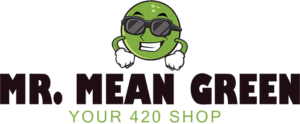Overview of CBD and its potential for weight loss
In recent years, there has been a growing interest in the potential of CBD for weight loss. CBD, or cannabidiol, is a natural compound in the cannabis plant that has gained popularity for its various health benefits. While CBD is not a magic pill for shedding pounds, it may offer promising effects that could support weight loss efforts.
CBD interacts with the body’s endocannabinoid system (ECS), a complex network of receptors and neurotransmitters that helps regulate various physiological processes. The ECS plays a role in appetite regulation, metabolism, and energy balance, making it a potential target for weight management.
One of the ways CBD may impact weight loss is by promoting the browning of fat cells. White fat cells are responsible for storing energy, while brown fat cells are involved in burning calories. Studies have shown that CBD may stimulate the conversion of white fat cells into brown fat cells, enhancing the body’s ability to burn calories.
Additionally, CBD may help reduce appetite and food intake. It has been suggested that CBD can interact with serotonin receptors in the brain, which regulate mood and appetite. By modulating serotonin levels, CBD may help curb cravings and promote feelings of satiety.
Furthermore, CBD has been studied for its potential anti-inflammatory properties. Chronic inflammation has been linked to obesity and metabolic disorders, so reducing inflammation in the body could positively impact weight management.
It’s important to note that CBD should not be seen as a substitute for a healthy lifestyle that includes a balanced diet and regular exercise. However, incorporating CBD into your wellness routine may provide additional support for your weight loss goals.
In the following sections, we will delve deeper into the science behind CBD and weight loss, explore different forms of CBD products, discuss recommended dosages, and address safety considerations and potential side effects. So, if you’re curious about how CBD could potentially aid in your weight loss journey, keep reading for a comprehensive guide on using CBD for weight loss.
What is CBD?
CBD, short for cannabidiol, is a naturally occurring compound in the cannabis plant. It is one of over 100 cannabinoids identified in cannabis, with THC (tetrahydrocannabinol) being the most well-known. Unlike THC, CBD does not produce the psychoactive effects commonly associated with cannabis use. Instead, it provides a range of potential health benefits.
The origin of CBD can be traced back to ancient civilizations, where cannabis was used for medicinal purposes. However, it is only in recent years that CBD has gained widespread attention and acceptance for its therapeutic properties. With advancements in scientific research and growing interest in holistic wellness, CBD has emerged as a popular natural remedy for various health conditions.
CBD is extracted from the hemp plant, a variety of cannabis that contains high levels of CBD and low levels of THC. This makes it legally distinct from marijuana, which typically contains higher levels of THC. CBD products are typically derived from hemp plants that have been carefully cultivated to maximize CBD content and minimize THC content.
In recent years, CBD has gained recognition for its potential to promote well-being and improve quality of life. It is commonly used to alleviate symptoms of conditions such as chronic pain, anxiety, insomnia, and inflammation. Additionally, CBD is being explored for its potential in treating epilepsy, cancer-related symptoms, and neurological disorders.
With its diverse potential benefits and minimal side effects, CBD has garnered significant attention from the medical community and the general public. As more research is conducted, our understanding of CBD and its potential applications continues to expand.
In the next section, we will delve deeper into how CBD affects weight loss and explore the potential benefits it may offer in this regard. Stay tuned!
To learn more about CBD and its origins, visit What is CBD?
CBD and Weight Loss
Many people are constantly seeking new solutions and strategies to help them shed those stubborn pounds when it comes to weight loss. One emerging health and wellness industry trend is using CBD (short for cannabidiol) for weight loss. CBD, a non-psychoactive compound derived from the cannabis plant, has been gaining popularity for its potential benefits in various areas of health. But how does CBD affect weight loss, and what are the potential benefits? Let’s explore.
How CBD Affects Weight Loss
CBD interacts with the body’s endocannabinoid system, which regulates various physiological processes, including appetite, metabolism, and energy balance. By interacting with the endocannabinoid receptors, CBD may help regulate these processes and potentially influence weight loss.
One way CBD may affect weight loss is by promoting the conversion of white fat into brown fat. White fat is the type of fat that accumulates in the body and is associated with increased weight gain and obesity. On the other hand, brown fat is considered “good” because it helps burn calories and generate heat. Studies suggest that CBD may stimulate the browning of white fat cells, leading to increased calorie burning and potentially aiding in weight loss.
Furthermore, CBD may also help regulate appetite and reduce food intake. While THC, another compound found in cannabis, is known to stimulate appetite, CBD has been shown to have the opposite effect. It may help suppress appetite and reduce cravings, which can be beneficial for individuals trying to control their food intake and make healthier dietary choices.
Potential Benefits of Using CBD for Weight Loss
The potential benefits of using CBD for weight loss extend beyond its effects on fat cells and appetite regulation. CBD has been reported to have anti-inflammatory properties, which could benefit individuals with obesity-related inflammation. Chronic inflammation in the body can hinder weight loss efforts and contribute to various health conditions.
Moreover, CBD may help improve sleep quality, reduce stress and anxiety, and promote overall well-being. These factors are often linked to weight gain and difficulty in maintaining a healthy weight. By addressing these underlying issues, CBD may indirectly support weight loss efforts.
Scientific Studies and Research on CBD and Weight Loss
Although research on the specific effects of CBD on weight loss is still in its early stages, preliminary studies and anecdotal evidence suggest promising results. A study published in the Molecular and Cellular Biochemistry journal found that CBD could help convert white fat cells into brown fat cells and promote fat browning. Another study published in the journal Obesity also reported that CBD could reduce appetite and food intake in animal models.
While these studies provide preliminary evidence, more research is needed to fully understand the mechanisms behind CBD’s effects on weight loss and its long-term efficacy in humans. Nonetheless, the potential benefits and positive anecdotal reports have sparked interest and curiosity among individuals seeking natural alternatives for weight management.
The next section will explore how to incorporate CBD into your weight loss journey, including different forms of CBD products, recommended dosage, safety considerations, and potential side effects. So, stay tuned!
How to Use CBD for Weight Loss
When it comes to incorporating CBD into your weight loss journey, understanding how to use it effectively is key. With various CBD products on the market, finding the right form and dosage can make all the difference. Additionally, it’s important to be aware of safety considerations and potential side effects. Let’s explore each of these aspects in detail.
Different Forms of CBD Products
CBD is available in various forms, allowing you to choose the one that best suits your preferences and lifestyle. Some popular CBD products include CBD oil, capsules, and edibles such as CBD gummies. Each form has unique advantages, so considering which one aligns with your needs is worth considering.
CBD oil is a versatile option that can be sublingually or added to food and beverages. It offers quick absorption and allows for easy dosage adjustments. On the other hand, CBD capsules provide a convenient and discreet way to consume CBD, making them ideal for those who are always on the go. If you enjoy a tasty treat while reaping the benefits of CBD, CBD edibles like CBD gummies can be a delightful choice.
Recommended Dosage for Weight Loss
Determining the right dosage of CBD for weight loss can be a personal journey, as it may vary depending on factors such as your body weight, metabolism, and desired effects. It’s always advisable to start with a low dosage and gradually increase it until you find the optimal amount that works for you.
Regarding CBD dosage, following the product’s instructions and consulting with a healthcare professional if needed is important. Additionally, considering factors such as the concentration of CBD in the product and your sensitivity can help guide your dosage decisions. You can refer to our CBD dosage guide for more detailed information on CBD dosage.
Safety Considerations and Potential Side Effects
While CBD is generally well-tolerated, it’s crucial to be aware of potential safety considerations and side effects. CBD is considered non-intoxicating, meaning it does not produce the euphoric effects commonly associated with THC. However, some individuals may experience mild side effects such as fatigue, dry mouth, or changes in appetite.
It’s recommended to start with a low dosage to assess your body’s response and gradually increase as needed. Additionally, choosing high-quality CBD products from reputable manufacturers is important to ensure their safety and effectiveness. If you have any underlying medical conditions or are taking other medications, it’s advisable to consult with a healthcare professional before incorporating CBD into your weight loss regimen.
In conclusion, using CBD for weight loss involves considering the different forms of CBD products available, finding the recommended dosage for your needs, and being mindful of safety considerations and potential side effects. By considering these factors, you can embark on your weight loss journey with confidence, knowing that CBD may provide additional support along the way.
Other Factors for Weight Loss
While CBD can play a significant role in weight loss, it’s important to remember that it is not a magic solution. In addition to incorporating CBD into your routine, other factors can contribute to a successful weight loss journey. Let’s explore some of these factors in more detail:
Importance of a Healthy Diet
A healthy diet is essential for achieving and maintaining a healthy weight. It’s important to fuel your body with nutrient-dense foods that provide the necessary vitamins, minerals, and antioxidants. Incorporating a variety of fruits, vegetables, whole grains, and lean proteins into your diet can help promote weight loss.
Choosing whole, unprocessed foods can provide your body with the necessary nutrients while minimizing the intake of added sugars, unhealthy fats, and preservatives. Additionally, drinking plenty of water is crucial for proper hydration and can help control appetite.
Regular Exercise and Physical Activity
Incorporating regular exercise and physical activity into your routine is key to achieving weight loss goals. Exercise helps burn calories, improves cardiovascular health, builds muscle, and boosts metabolism. It can also reduce the risk of chronic diseases and promote overall well-being.
Engaging in activities such as cardiovascular exercises, strength training, yoga, or pilates can help increase calorie expenditure and improve overall fitness levels. Finding activities that you enjoy can make exercise more sustainable and enjoyable.
Lifestyle Changes for Weight Management
Weight management is not just about losing weight; it’s also about maintaining a healthy weight in the long term. Making sustainable lifestyle changes is crucial for achieving lasting results. Here are some tips to consider:
- Get enough sleep: Poor sleep can disrupt hormone levels and increase the risk of weight gain. Aim for at least 7-8 hours of quality sleep each night.
- Manage stress: Chronic stress can contribute to weight gain. Incorporate stress-management techniques such as meditation, deep breathing exercises, or yoga into your daily routine.
- Track your progress: Keeping track of your food intake, exercise, and progress can help you stay motivated and accountable. Consider using a food diary or a fitness-tracking app to monitor your habits.
- Seek support: Surrounding yourself with a supportive network can make a significant difference in achieving your weight loss goals. Consider joining a support group or seeking guidance from a registered dietitian or personal trainer.
Remember, weight loss is a journey that requires patience, consistency, and dedication. By incorporating CBD into your routine and addressing other factors such as a healthy diet, regular exercise, and lifestyle changes, you can optimize your chances of achieving your weight loss goals.
Conclusion
In conclusion, CBD holds tremendous promise as a potential aid for weight loss. CBD may support various mechanisms that contribute to weight management through its interaction with the body’s endocannabinoid system. While further research is needed to fully understand the extent of CBD’s impact on weight loss, initial studies have shown promising results.
By incorporating CBD into your weight loss journey, you may experience various benefits. CBD has been reported to help regulate appetite, reduce cravings, and promote fat browning. Additionally, it may aid in improving metabolism and reducing inflammation, both of which can play significant roles in weight management.
When using CBD for weight loss, choosing the right form and dosage is important. CBD products are available in various forms, such as CBD capsules, CBD edibles, and CBD tinctures. Each form has advantages and considerations, so selecting the one that best suits your preferences and lifestyle is essential. It is recommended to start with a low dosage and gradually increase as needed, following the guidelines provided by the manufacturer or consulting with a healthcare professional.
While CBD is generally considered safe, it is important to be aware of potential side effects, such as dry mouth, dizziness, and changes in appetite. It is also crucial to ensure the quality and purity of your CBD products. Look for products that have undergone third-party testing and are sourced from reputable manufacturers.
Incorporating CBD into your weight loss journey is just one piece of the puzzle. Adopting a holistic approach that includes a healthy diet, regular exercise, and lifestyle changes is essential. CBD can complement these efforts by providing additional support and enhancing overall well-being.
Remember, before starting any weight loss regimen or incorporating CBD into your routine, it is advisable to consult with a healthcare professional, especially if you have any underlying medical conditions or are taking medications that may interact with CBD.
In conclusion, CBD offers a promising avenue for individuals seeking to manage their weight effectively. Its potential benefits and a healthy lifestyle can contribute to achieving your weight loss goals. Stay informed, stay proactive, and explore the possibilities CBD offers on your journey to a healthier you.
Note: The information provided in this article is for educational purposes only and should not be considered medical advice. Always consult a healthcare professional before making any dietary changes or starting a new supplement regimen.




